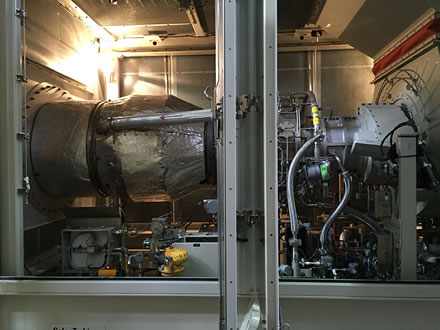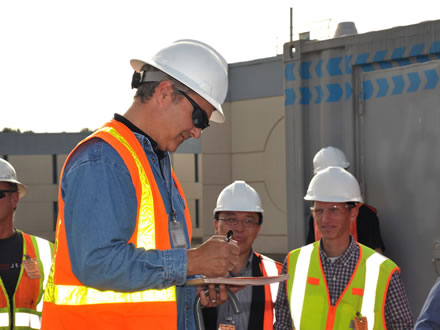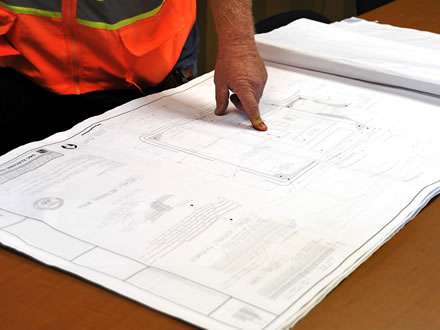Main Header
Site Search

Oakland University
The Opportunity
ENGIE Services U.S. (ENGIE) has been working together with Oakland University in Rochester, Michigan for nearly 20 years, implementing energy efficiency measures that save the University money and improve the performance and reliability of its facilities. Energized by improvements that have saved the University more than $400,000 annually, and reduced water waste by over ten million gallons per year, Oakland University entered a new phase of development with ENGIE in 2014.
The most recent phase of work included a new cogeneration system — where a natural gas turbine generates electricity and useful heat at the same time. This technology attracted University stakeholders for its ability to grant greater flexibility and independence from the utility, all while delivering millions of dollars in annual energy savings.
The Partnership
Building upon a long-standing and successful relationship, Oakland University and ENGIE teamed up to implement a cogeneration system at the University’s Central Heating Plant. ENGIE installed a five-megawatt cogeneration natural gas-driven turbine and a waste heat recovery boiler, which captures and utilizes turbine exhaust waste heat in order to heat the University’s high temperature hot water system, serving heating and cooling needs on campus. This new system provides flexibility and gives the University capability to produce its own electrical power for the campus. During the course of program installation, ENGIE worked closely with the University to overcome obstacles that arose. At program start, the University encountered a challenge stemming from the new turbine’s gas pressure requirements. The gas compression station that would have been needed to meet the turbine’s pressure requirements would detract from the overall reliability of the new system. Fortunately, ENGIE and the University were able to negotiate with the local gas supplier to install a dedicated high pressure line for the project. Over time, the supplier will refund approximately 95 percent of the cost based on projected future gas consumption. In the end, the need for gas compression was eliminated and the University was equipped with a more reliable system.The University utilized energy savings and a natural gas pipeline rebate from a local energy provider to pay for debt service and an annual comprehensive maintenance program for the turbine. As a result of this additional partnership, the project was completely funded by positive cash flow from the energy savings.
Real World Learning for Students
In addition to reducing utility costs, the University was excited to work with ENGIE to incorporate educational opportunities into the program implementation. Working in partnership with administration, faculty, staff, and students, ENGIE delivered educational enhancements enabling students to obtain field experience in science, technology, engineering, and math (STEM). ENGIE supported energy internships and job-shadowing programs during the construction process, in collaboration with Oakland University’s Clean Energy Research Center. Additionally, a live dashboard with data from the cogeneration system is available to students and professors for academic use.
3 Dimensions of Impact
ENGIE is committed to building three dimensions of impact in every customer’s future:
- Supporting People
- Saving Money
- Protecting the Environment
As a result of the long-term partnership with ENGIE, the University is no longer dependent on the electric utility as its primary source of power and is now equipped with a more reliable system which will help to eliminate power outages. The more efficient production of electricity and heat at its Central Heating Plant means that Oakland University will offset annual carbon emissions, while providing economic and safety benefits to the community at large.
The University now has greater power reliability with backup capability. The modernizations at the Central Heating Plant have put the University in a position to provide a safe haven for the surrounding community in the event of a major outage at the utility. Additionally, the modernizations at the Central Heating Plant bolster the local economy through a combination of job creation and increased local spending. The project is expected to generate and maintain 263 direct and indirect jobs over its lifetime, which will boost local spending by millions of dollars. With anticipated overall program savings of over $22 million in the next 15 years, the University is primed to better deliver outstanding educational services to its students.







